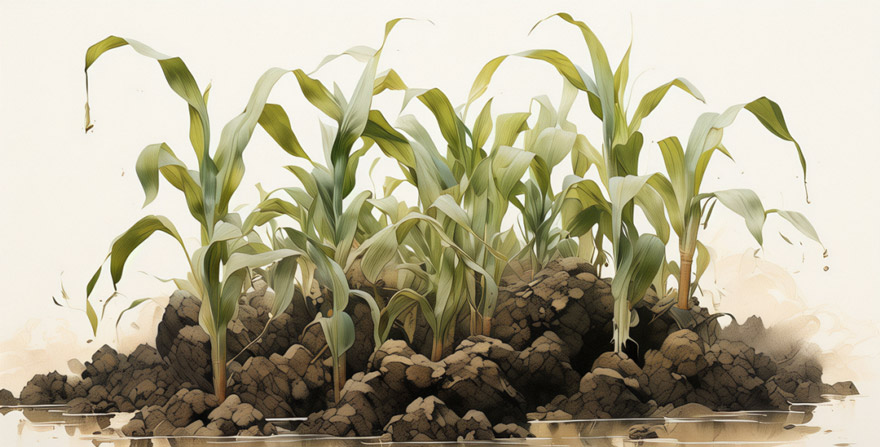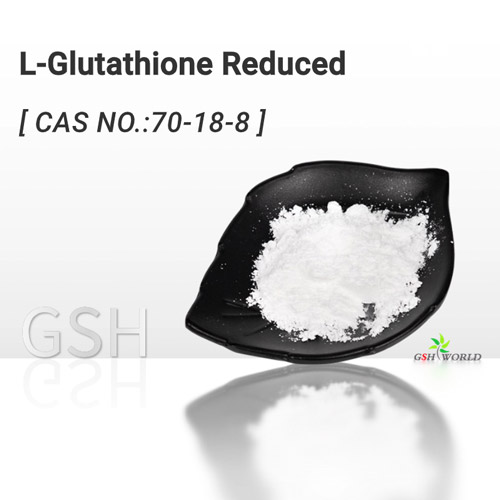Alleviating effect of exogenous glutathione on maize seedlings under low temperature stress
Low temperature stress is one of the common adversities in agricultural planting,
especially in Heilongjiang and other areas, low temperature cold damage and reverse spring cold phenomenon are frequent,
seriously affecting crop growth, reducing crop quality and yield.
As an important grain crop in China, the growth of maize is adversely affected by low temperature.
Glutathione, as a widely studied antioxidant, plays a key role in plant stress resistance,
especially in promoting plant growth under low temperature stress.
The aim of this study was to investigate the effects of exogenous glutathione on the growth and physiological characteristics of maize seedlings under low temperature stress.
Materials and Methods:
- Experimental material: Maize hybrid ‘Zhengdan 958’ was selected.
- Treatment setting: 10℃ as a low temperature stress condition, 0.5 g/L glutathione solution as exogenous treatment.
- The experimental design was divided into four treatment groups: CK (no stress and no treatment), CK1 (no stress but glutathione), LT (low temperature stress and glutathione treatment), LT1 (low temperature stress and glutathione treatment).
Analysis of experimental results:
- 1. Seed germination: Under low temperature stress, the germination rate and germination potential of corn seeds decreased. Exogenous glutathione treatment increased germination potential and germination rate by 22.01% and 11.84%, respectively.
- 2. Seedling growth: Low temperature decreased seedling height, leaf area, dry (fresh) weight and leaf water content. After glutathione applied, these indexes showed a significant upward trend, with seedling height increasing by 3.38% to 7.23% and leaf area increasing by 1.80% to 11.29%.
- 3. Antioxidant system: Under low temperature stress, SOD, POD and CAT activities increased, APX activities increased, but AsA and GSH contents decreased. After exogenous glutathione treatment, the activities of these antioxidant enzymes further enhanced, and the contents of AsA and GSH increased by 31.37% to 73.33% and 40.00% to 64.29%, respectively.
- 4. Osmoregulatory substances: Under low temperature stress, the contents of soluble sugar, soluble protein and proline increased, and the content of MDA accumulated. After glutathione treatment, the content of these substances further increased, and the MDA content reduced by 35.19% to 33.33%.
- 5. Photosynthesis: Low temperatures lead to reduced photosynthetic efficiency and decreased chlorophyll content. After glutathione treatment, SPAD value increased, chlorophyll synthesis accelerated, photosynthetic parameters Pn, Gs, Ci and Tr increased.
Conclusion:
Exogenous 0.5 g/L glutathione can effectively alleviate the inhibitory effect of low temperature stress on the growth of maize seedlings,
improve the seed germination rate, promote the growth of seedlings, enhance the antioxidant system,
increase the content of osmoregulatory substances, maintain photosynthesis, and thus enhance the resistance of maize to low temperature.
Exogenous GSH reduces the ROS damage under low temperature stress by increasing the activity of antioxidant enzymes and the content of endogenous antioxidant substances, protects the integrity of cell membrane,
slows down the decomposition of chlorophyll, maintains photosynthesis,
and thus improves the cold resistance of maize.
These findings provide important biological regulatory strategies for maize production in low temperature regions.
This study revealed the important role of exogenous glutathione in improving the cold resistance of maize, and provided a new solution for maize cultivation in low temperature areas.
Glutathione, as an effective bioregulator, protects maize from damage caused by low temperature by increasing antioxidant system and osmoregulatory substance content.




